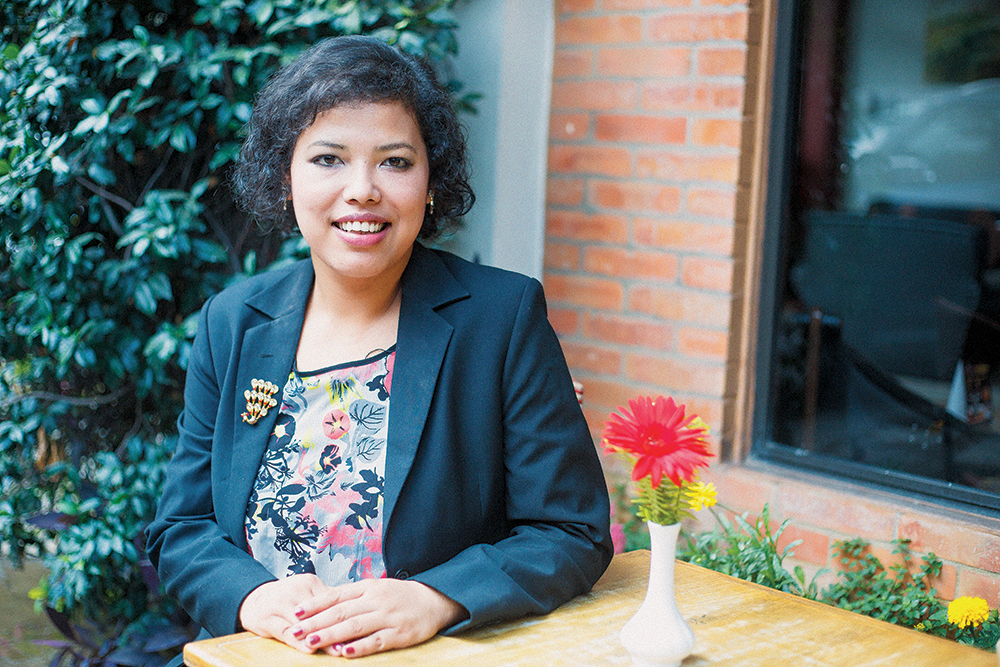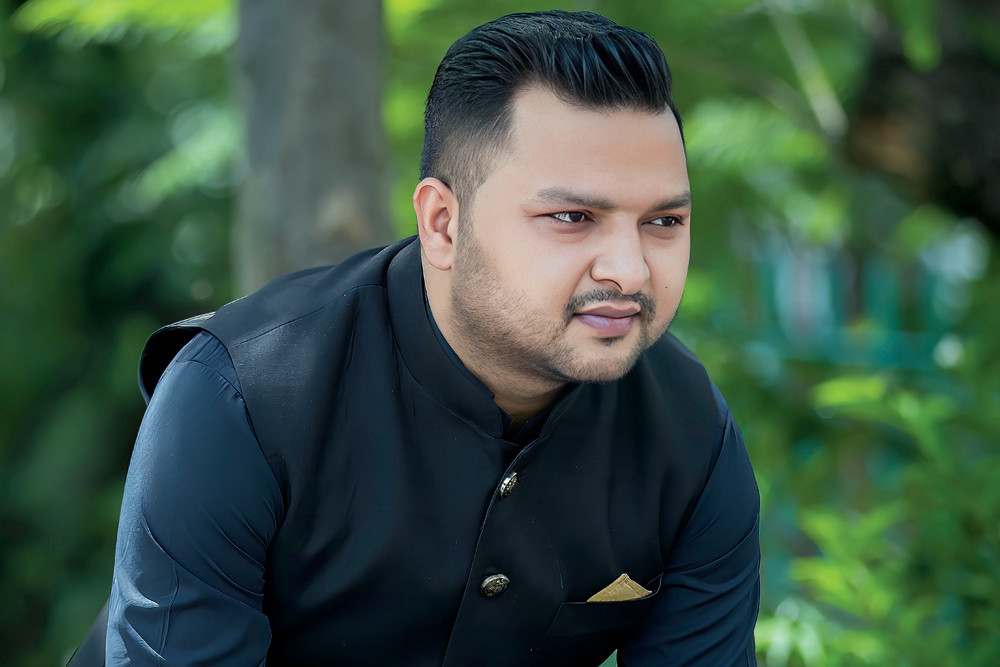
Santona Malakar
Associate, SAFAL Partners
Santona Malakar, Associate at SAFAL Partners, says that her professional journey has been shaped by her decisions and those choices have not been stereotypical. After completing her undergraduate degree in Pharmacy from Kathmandu University, Malakar chose to join the marketing side of the industry. “I was one of the handfuls from my batch to do so because our undergrad education was more technical and did not offer much training in terms of marketing pharmaceutical products,” she shares, adding, “I learnt the fundamentals of sales and marketing and how to work in a large team in my first job.” While still on the job, Malakar completed her Executive MBA from KU. “During my Executive MBA, I met professionals from all walks of life and my MBA education inspired me to not limit myself to the pharmaceutical industry,” she reflects. Malakar adds that while switching sectors is common abroad, it still was not that common in Nepal, especially among her circle where most friends are pharmacists or doctors or engineers (people who work in a single industry in their entire career). After having completed her EMBA, she made a career switch to management consultancy. At present, Malakar is leading the Nepal-side operations of South-Asia-wide regional angel investment alliance for women entrepreneurs as a part of a USAID-funded project titled DAI SARDI. “I am enjoying working with a pool of tech-enabled women-led enterprises and young female founders, each changing the narrative around women’s leadership and their role in the global economy, one enterprise at a time,” she informs. This project, she adds, has also opened doors for her to work closely with cross-border incubators and angel investment platforms to build a regional platform for women entrepreneurs to access growth capital, investments, mentoring, and the like for them to scale their businesses and reach their full potential. In the past two years, she has worked as a private sector Operations Lead for another project where she has collaborated with NGOs and civil society organisations working with at-risk youth and trafficking survivors (male and female), to train these youths with vocational and entrepreneurship skills. “At a board level, I take great joy in the range of people and organisations (non-profit to IT to agri-MSMEs) that I work with at my current job at SAFAL Partners,” she says.Creating my own success metrics
I chose to define my own success metrics, be it in the career choices one makes or life decisions. It is easy to fall for ‘society’s’ idea of what success means and looks for a woman, and long before one realises it, one is already a part of a never-ending rat race. I have made deliberate decisions to make sure I am living by and at my own standards and not by some defined by the people of a bygone era. To be happy, to be able to understand what one truly wants, put effort to find clarity in one’s thinking, and live a life that reflects one’s personal values.Self-respect is paramount
Nothing is more important than your self-respect and your sense of sanity. And every crisis brings along a greater opportunity. A leader is someone who can make the pie bigger for everyone while keeping the elements of ethics and governance in place.Women need to put in extra effort
I would like to highlight that women as leaders in Nepal do have to fight the patriarchal mindset. Just take notice of how easy it is for a young guy to elicit ‘Sir’ before their name from people in the room versus for young-looking women. Or rather how difficult it is for women to be liked as a leader when they call shots - the Nepali society still finds it alien for women to be more focused or interested in their crafts rather than their looks or their ‘society-defined’ feminine mannerisms. This implies that women need to develop more skill sets to advance into leadership roles than a male would require. So, if a woman has taken the leadership role, I understand that she has truly earned it and fought more battles to be in that position (visible and invisible) than her male counterpart.Teamwork wins the game
Everything is better when it’s teamwork and teamwork today looks different than in the past as organisational structures get flatter and technology enables most of our communications and collaborations. There is a great need to be curious and open-minded about the ‘how’ part of teamwork. But the ‘why’ part of teamwork basically remains the same. If the goal is to be sustainable, go for teamwork. That’s what wins the game.End goal: happy and proud
I want to die happy and proud, I do not think about being remembered much. READ ALSO:- "In future, discussion should not be around ‘women leaders’, but just ‘leaders'"
- ‘We should provide unbiased leadership opportunities for all genders’
- ‘I chose to utilise my time to reach out to more people, talk to them and share experiences’
- ‘When even just one person trusts and supports your dream then there is no stopping you’
Published Date: April 5, 2023, 12:00 am
Post Comment
E-Magazine
RELATED Hi5



.jpg)

.jpg)